Identifying biomarkers of diabetes-associated breast cancer initiation and progression
Faculty: Anu Rangarajan (DBG), Ashok Sekhar (MBU)
Incidences of both breast cancer and type 2 diabetes (T2D) are on the rise in India. Although an association between breast cancer and diabetes is known in the Western countries, where diabetes is associated with obesity, in India, a large population of diabetics are predicted to be lean. Moreover, Indians differ from the Western population in terms of their genetics, ethnic diversity, physical activity, food habits among others. Yet, the association between diabetes and breast cancer in the Indian population remains to be investigated. Understanding the relationship between breast cancer and diabetes is important for devising patient-specific therapeutic strategies, risk assessment, predicting disease prognosis and monitoring the response to treatment.
Metabolic reprogramming is a hallmark of both cancer and T2D. Quantifying the small molecule metabolites and proteins present in body fluids such as blood and urine (metabolomics) is emerging as a powerful tool for characterizing the metabolic phenotype. In this project, we propose to use Nuclear magnetic resonance (NMR) spectroscopy and liquid chromatography-mass spectrometry (LC-MS) for metabolic phenotyping of biological fluids obtained from healthy volunteers, patients with T2D (no cancer), patients with breast cancer with and without T2D. Metabolic fingerprinting and appropriate machine learning models will be constructed for identifying small molecule metabolites and proteins that discriminate patients with both T2D and breast cancer from healthy individuals as well as patients afflicted with only T2D or breast cancer.
